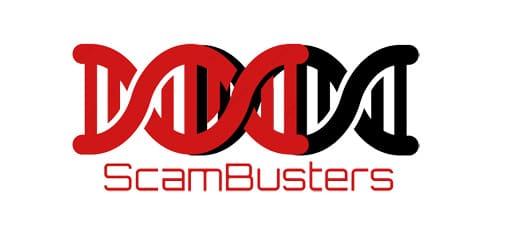Masterminds of South Africa’s biggest pyramid scheme in history could lose millions, face jailtime
The promoters and directors of Mirror Trading International could face criminal prosecution and significant civil penalties, Barnard Incorporated Attorneys senior associate Pieter Walters has told MyBroadband.
“The liquidators of MTI can proceed to open a case with the relevant investigative authorities pending appeal proceedings,” Walters said.
Mirror Trading International (MTI) was a Bitcoin-based network marketing scam that began in South Africa in 2019 and drew in members worldwide.
It promised to grow members’ Bitcoin with monthly yields averaging 10% and offered a way for participants to earn substantial bonuses by recruiting more people into the scheme.
MTI’s membership exploded in 2020 during the Covid–19 lockdown.
Acting judge in the Western Cape High Court, Alma de Wet, ruled in April 2023 that MTI was a pyramid and a Ponzi-type scam.
Former MTI referral programme head and 50% shareholder Clynton Marks has applied twice to appeal the ruling. Neither application was granted. It remains to be seen if further appeals will be filed.
“Appeal proceedings will not prevent the National Prosecuting Authority from investigating the matter,” Walters said.
“The finding that the scheme is unlawful does bolster the case of the NPA but the NPA will still be called upon to make its own findings.”
Walters explained that the liquidators could also institute civil claims against the directors of the scheme in their personal capacities under the provisions of Sections 76(3), 77 and 218(2) of the Companies Act 71 of 2008, as well as Section 424 of the Companies Act 61 of 1973.
“The aforementioned provisions are not an exhaustive list and does not include further proceedings that may be instituted subsequent to a insolvency enquiry and the possible evidence that may be extracted in terms of such proceedings,” he noted.
The Financial Sector Conduct Authority (FSCA) opened a criminal case against MTI in December 2020.

MTI CEO Johann Steynberg’s last public appearance during a monthly leadership Q&A Zoom call in December 2020
MTI made headlines in September 2020 when a group calling itself Anonymous ZA exploited vulnerabilities in the scheme’s poorly-coded website.
Together with a MyBroadband investigative journalist and community members, the group exposed the inner workings of MTI.
Financial regulators globally also started issuing warnings against MTI, including South Africa’s own Financial Sector Conduct Authority, which orchestrated a dawn raid of its offices.
The scheme collapsed after MTI CEO Johann Steynberg travelled to Brazil and went missing in December 2020.
Liquidation proceedings were instituted soon thereafter, and the final liquidation order was granted in June 2021.
Steynberg was arrested in Brazil in December 2021.
MTI’s liquidators filed court documents estimating that 29,421 bitcoins flowed through the scheme.
Sources with knowledge of the case told MyBroadband the actual number is closer to 46,000 bitcoins.
Most recently, RSG Geldsake with Moneyweb (Afrikaans wordplay “money-matters” or “money-business”) reported that around 39,000 bitcoins had
been deposited into the scheme and 32,000 withdrawn — leaving a difference of roughly 7,000 bitcoin.
Regardless of which number you use, MTI is the biggest pyramid or Ponzi-like scheme in South Africa’s history.
Using the current bitcoin price of around R879,000, even the lower estimate values MTI at R25.9 billion.

Johann Steynberg, former Mirror Trading International CEO arrested in Brazil in December 2021
Part of De Wet’s ruling that MTI was a pyramid scheme also declared all agreements concluded between MTI and its investors unlawful and void ab initio — they are to be treated as if they never existed.
However, De Wet refused the rest of the relief the liquidators sought, including:
- An order stating that MTI has been factually insolvent since 18 August 2019.
- Declaring all funds invested in MTI as dispositions without value in terms of the Insolvency Act.
- Declaring all dispositions since 23 June 2020 as prejudicial towards certain MTI creditors in terms of the Insolvency Act.
- An alternative order allowing the liquidators to recover these dispositions from investors.
Walters explained that, in his opinion, the judge could, under the circumstances, not be expected to apply a “blanket approach” in finding that all of the transactions and agreements were voidable dispositions in terms of the Insolvency Act.
“Voidable dispositions are regulated by Sections 29 to 34 of the Insolvency Act and is aimed at empowering the liquidators to recover funds or assets that were paid or allocated to a party under the circumstances as described within these sections of the Act,” Walters stated.
“The liquidators will need to issue summons against each of the investors and reclaim the funds in terms of the provisions of Section 26 and 29.”
Walters said the amount the liquidators can claim will not necessarily be the full benefit that an investor received as it would be impacted by the timelines and other factors provided for within the law.
“The liquidators are not limited to the aforementioned provisions as the Insolvency Act also have other mechanisms to address voidable dispositions,” he added.
Several MTI scheme participants have revealed publicly that the liquidators have issued summons against them.
Regarding victims who lost money in the scheme, Walters said they could submit a claim with the liquidators, who will administer the claims in terms of the provisions of the Insolvency Act.
“The victims will be provided with claim forms… [which] are to be submitted with the liquidators who will consider and administer the claims in terms of Sections 43 to 46 of the Insolvency Act.”

